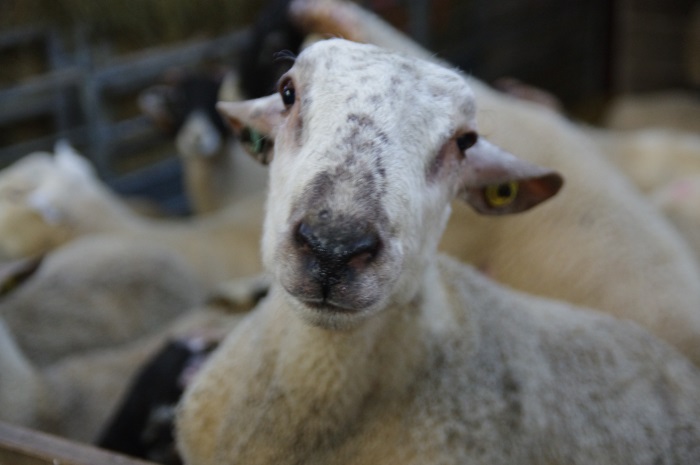At the final meeting of AHDB’s Royston Monitor Farm, host farmer Jo Franklin revealed that the next phase for the farm business could be sheep dairying.
Jo and her partner Rob run a mixed arable and sheep enterprise across a number of farms and tenancies within a 35-mile radius near Royston, Hertfordshire. They have hosted one of AHDB’s Monitor Farms since 2014.
AHDB Monitor Farms bring together groups of like-minded farmers who wish to improve their businesses by sharing performance information and best practice around a nationwide network of host farms. AHDB organises and facilitates Monitor Farm meetings for local farmers, who own and operate the scheme – by farmers, for farmers. The Monitor Farm is part of AHDB’s Farm Excellence Platform.
The final meeting of the Monitor Farm was held on a tenancy recently taken on by Jo and Rob – Hole Farm, near Ware.
Hole Farm is the first to be held in equal partnership by Jo and Rob. The land is not best-suited to arable farming, but running the farm as a completely mixed enterprise makes it more financially viable.
Jo said: “There’s a wide variety of soil types and we’ve got brome and black-grass. It wouldn’t be viable as a purely arable farm, but it’s got a run of grass through the middle which makes it brilliant for a mixed farm. The sheep can be run out to graze arable crops and then return to the grass.”
Having taken on more land, including Hole Farm, and more sheep over the duration of the Monitor Farm project, Rob and Jo are looking at a new diversification venture based on producing sheep milk to sell to processors.
“Our first thoughts for the dairying came from two places. Firstly, we heard Tesco tell us it was one of their most rapidly growing, and under supplied markets. And secondly, we have a lot of clover rich leys going in the ground through mid-tier schemes and wanting to best utilise them.
Jo and Rob believe the doorstep price of sheep milk to be £1.25-£1.40/lt (80p to the supermarkets).
“The diversification would mean that we would need to negotiate a longer FBT, but we think the set-up costs, including a second-hand rotary parlour, could be less than £50,000. With the sheep milk market as it is at the moment, the finances look good,” Jo said.
“It’s a good option for diversification for us. We don’t need a lot of infrastructure or land and we’ve already got a lot of the skills we need.”
According to the British Sheep Dairying Association, ewes have a lactation of between 200 and 250 days, and yields per ewe can vary from 150 to 450 litres, depending on nutrition, genetics and management.
Teresa Meadows, AHDB Cereals & Oilseeds Knowledge Exchange Manager for East Anglia, said: “This is a really good example of the power of the Monitor Farm scheme. Throughout the three years we’ve seen this business look carefully at its cropping and production and, as a result, take some bold steps into new territory.
“We’ve seen the arable and sheep business partnership strengthen during the Monitor Farm project. Having both the enterprises here means that during our meetings we’ve been able to cover topics like grazing cover crops.
“As with any niche product, it’s obviously going to be important for Jo and Rob to secure a market for their sheep milk, just as would be the case for a speciality arable crop.”
Monitor Farms are part of AHDB’s wider Farm Excellence Platform, which inspires industry to improve performance and succeed through farmer-to-farmer knowledge exchange. The programme includes the development of Strategic Farms and Monitor Farms across six agricultural sectors.
Monitor Farm benchmarking groups use Farmbench – AHDB’s new whole-farm benchmarking tool. For more information, visit farmbench.org.uk.
To find your local Monitor Farm visit cereals.ahdb.org.uk/monitorfarms.


